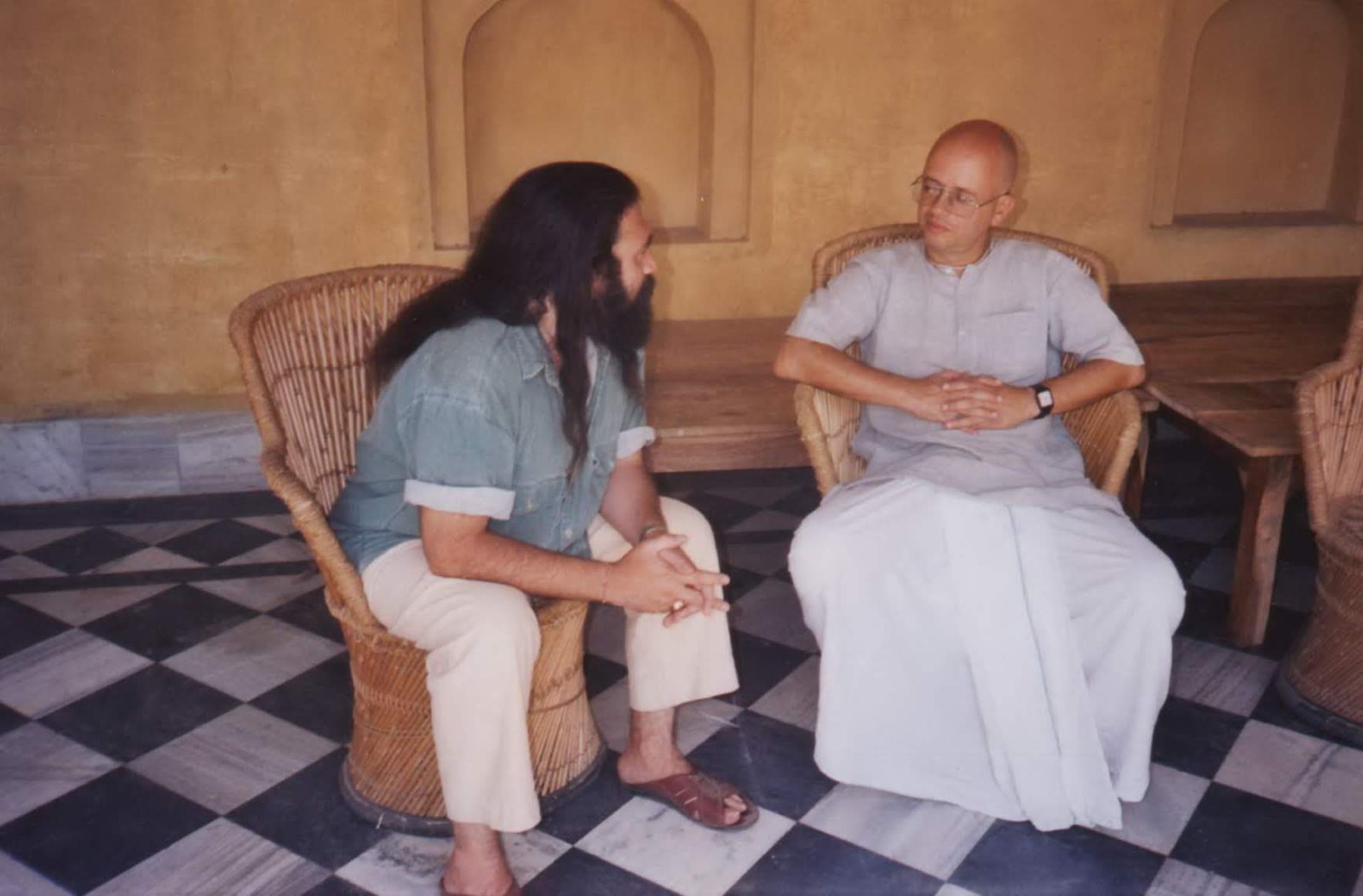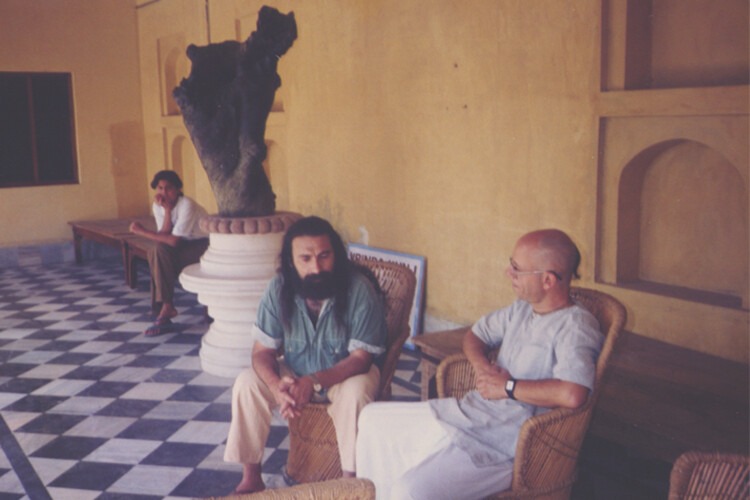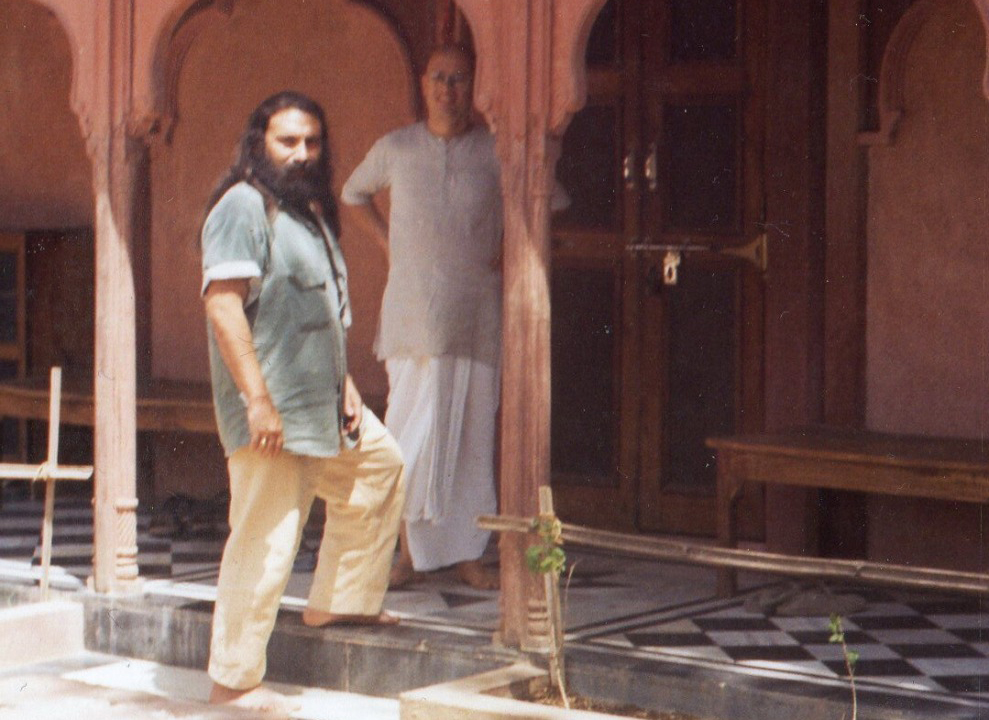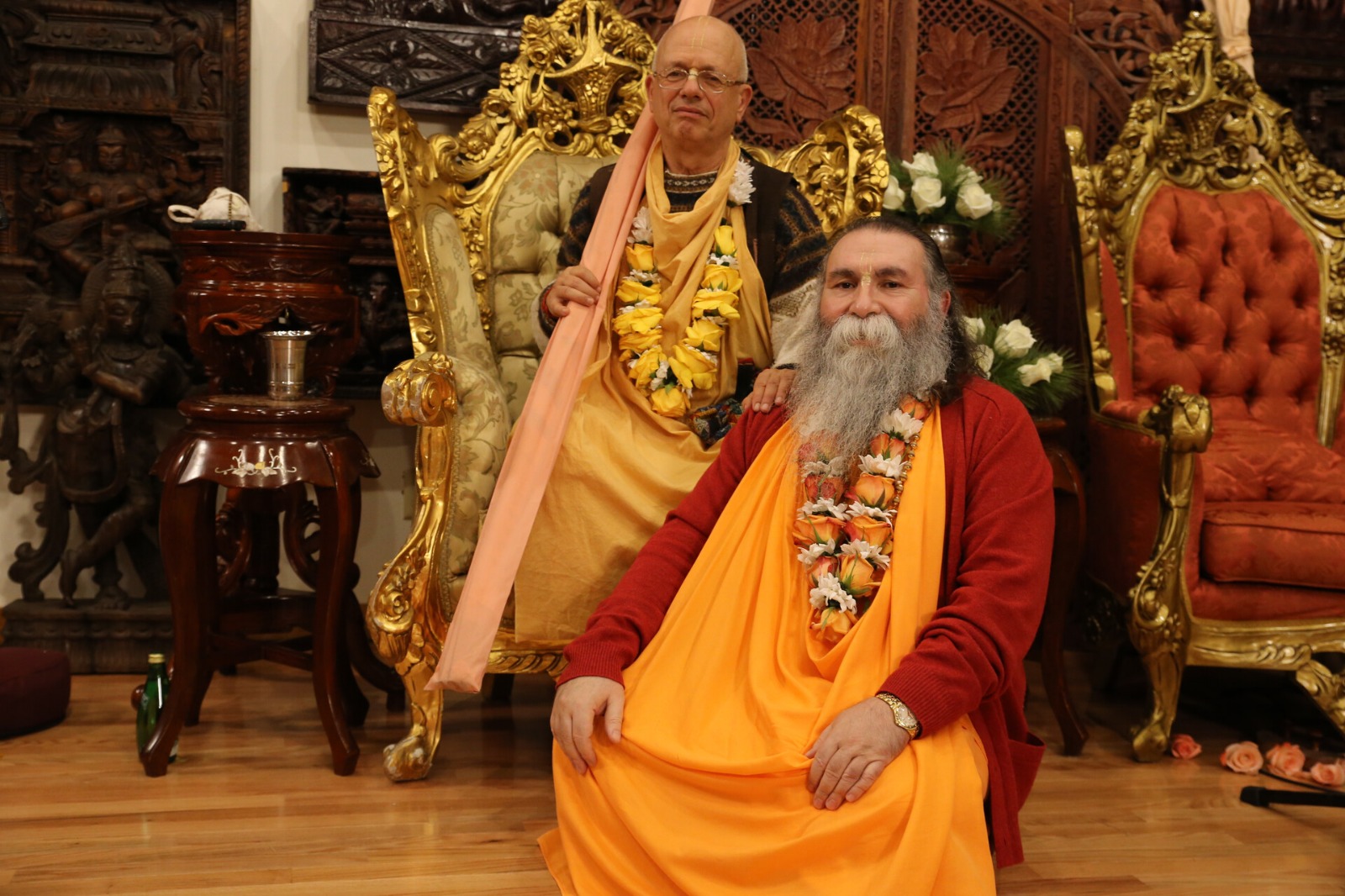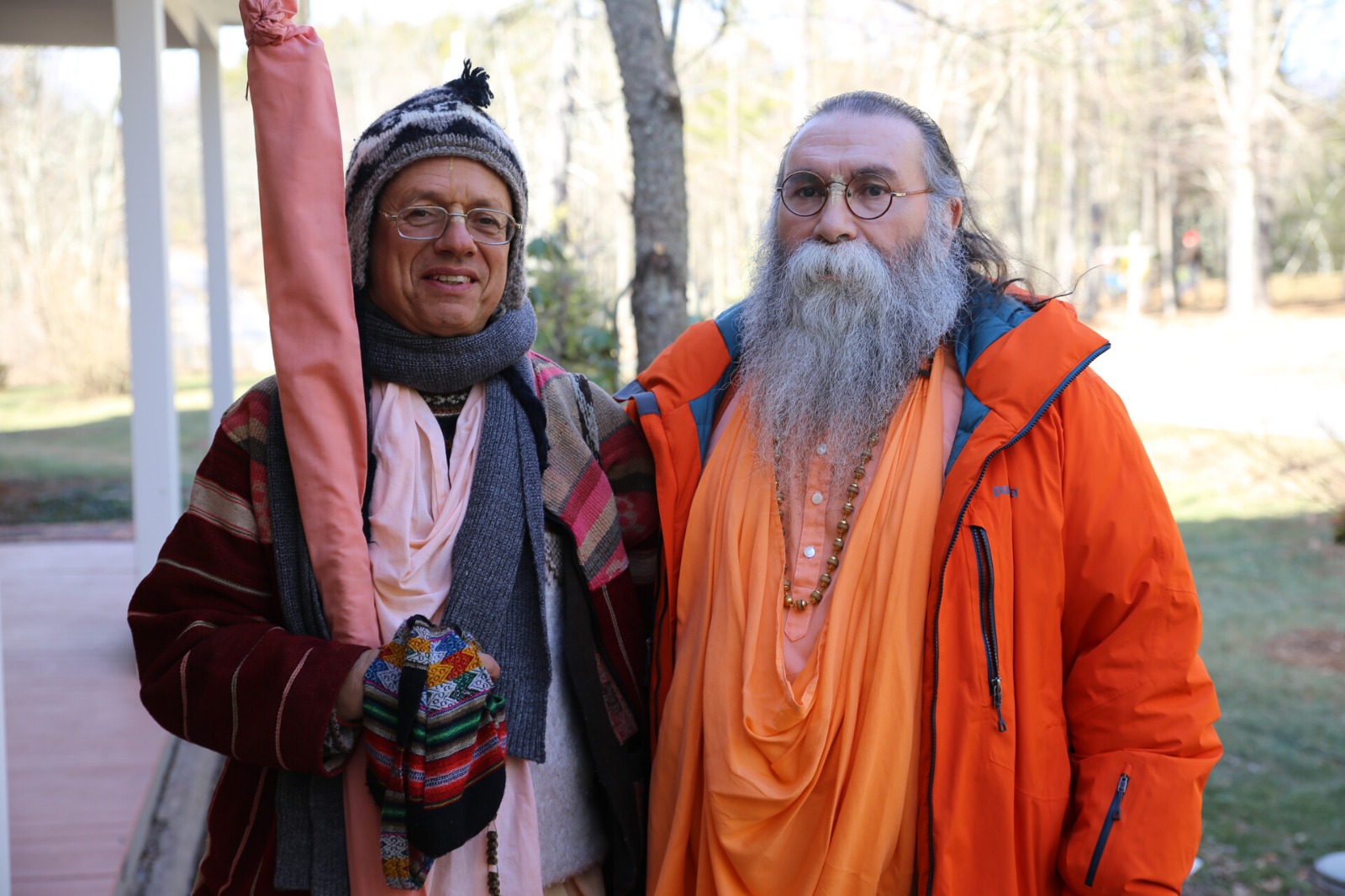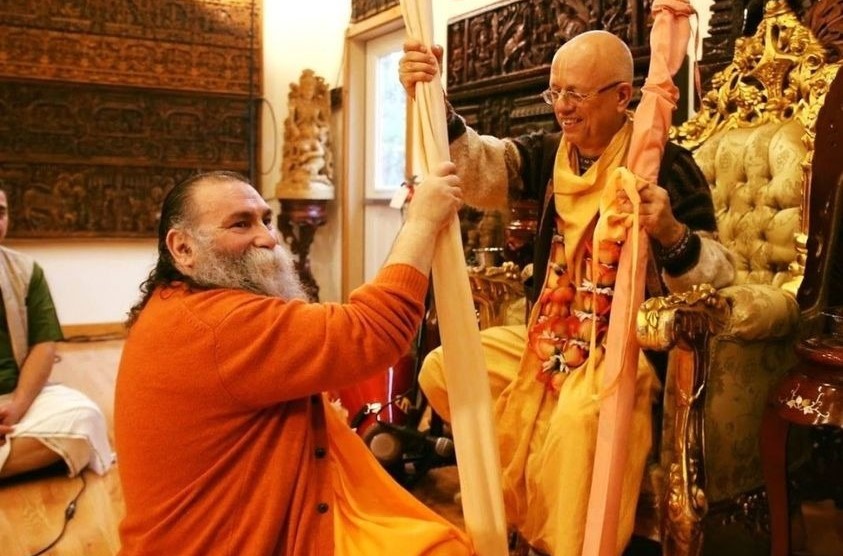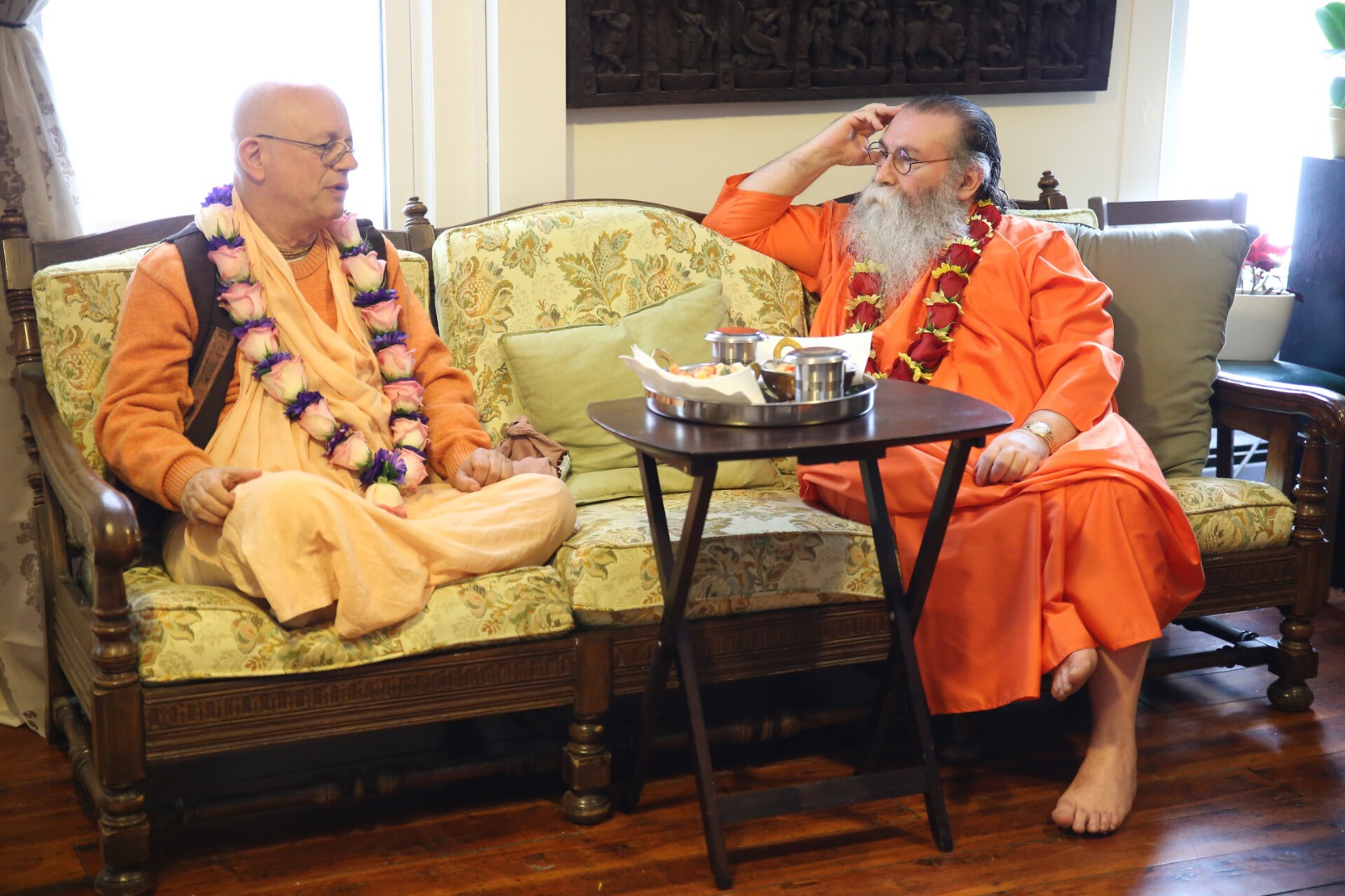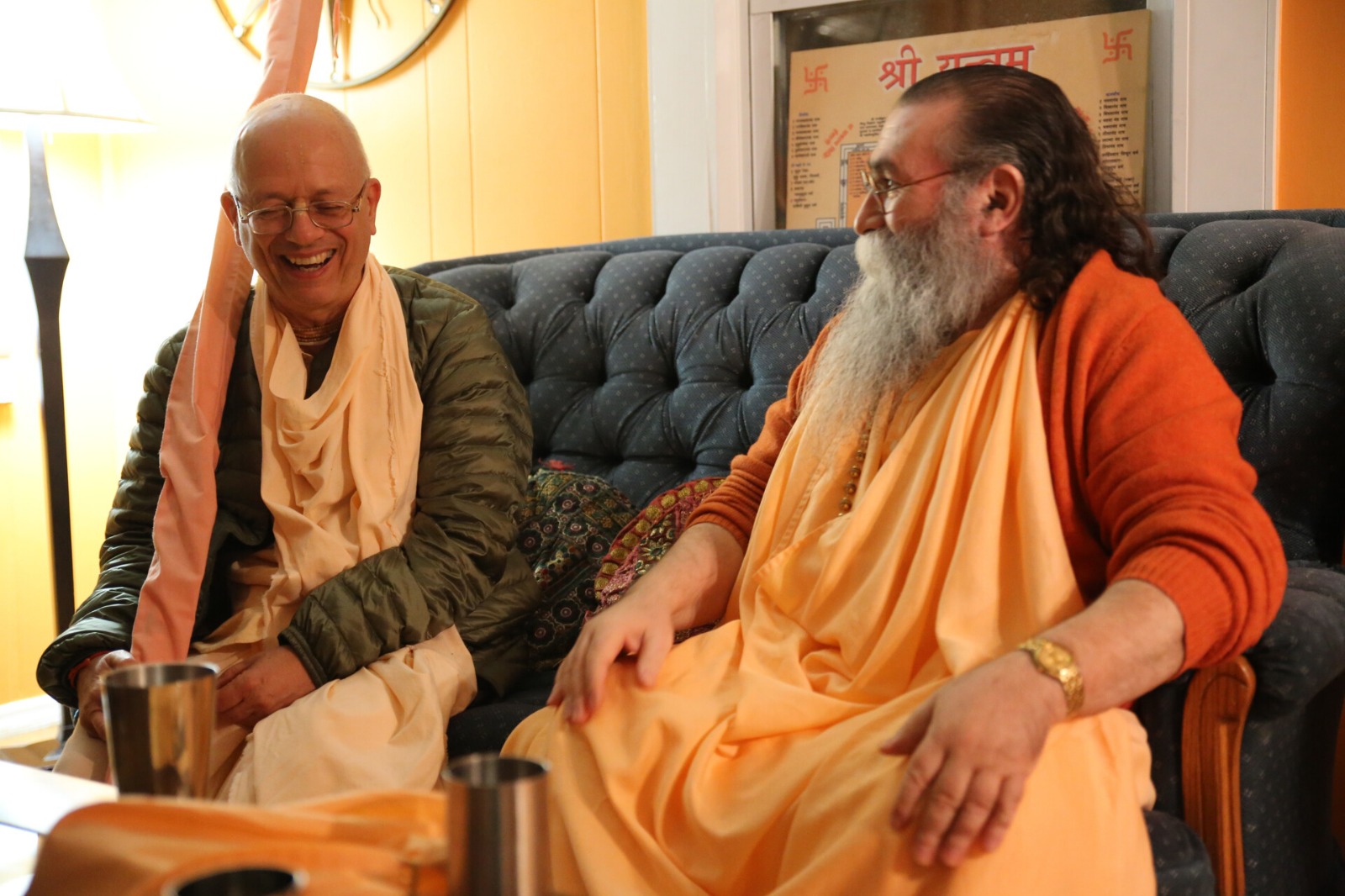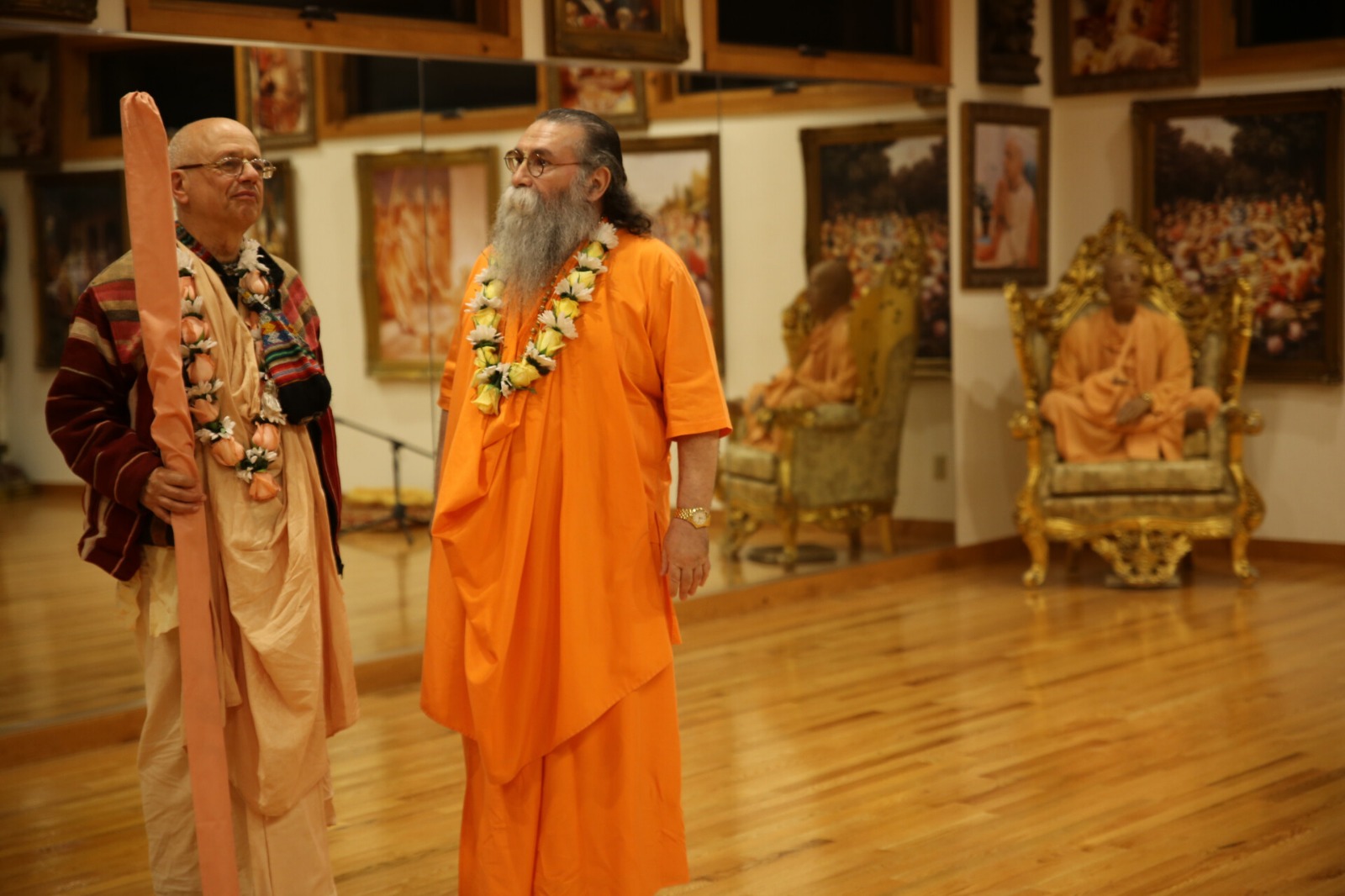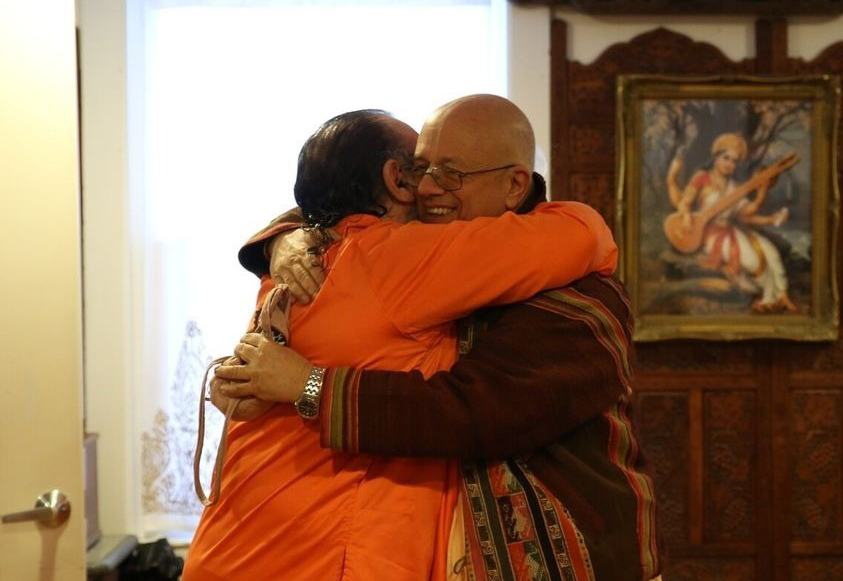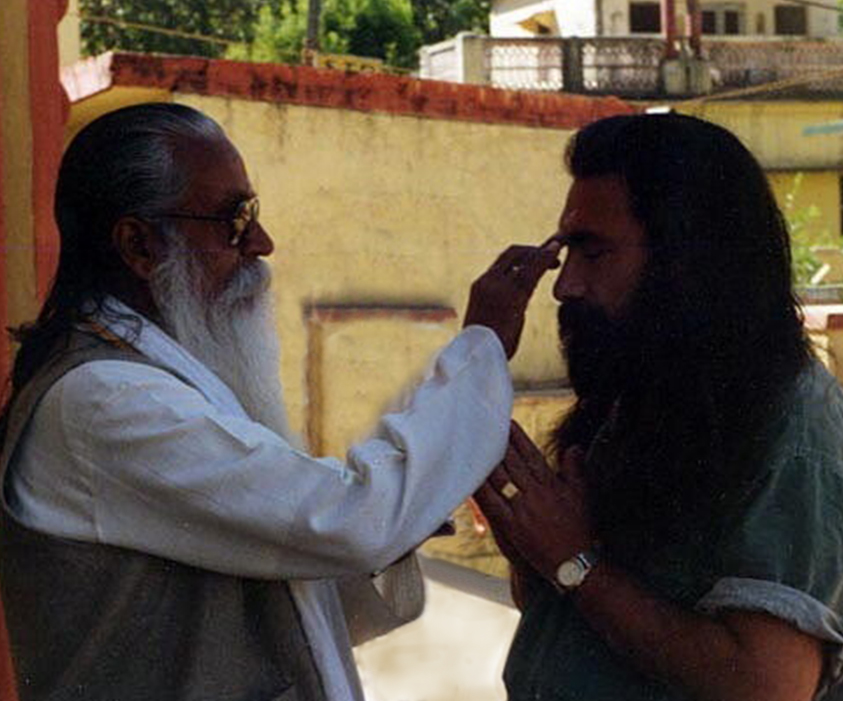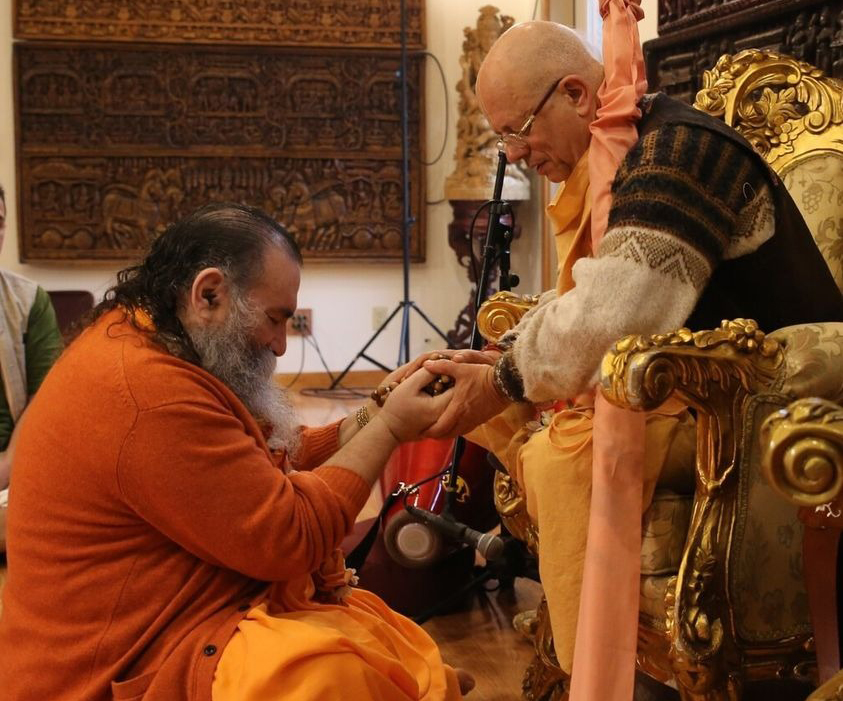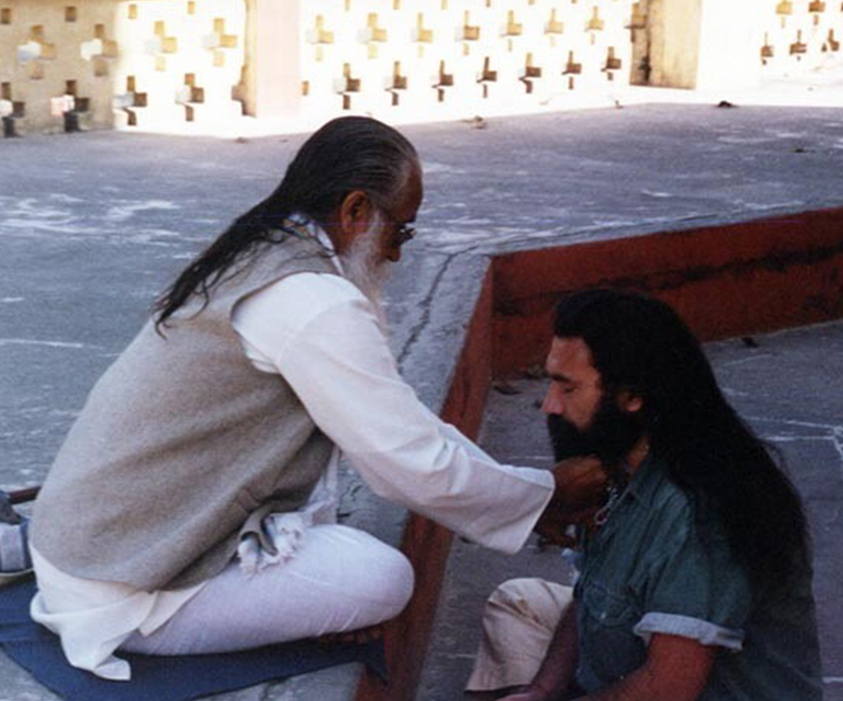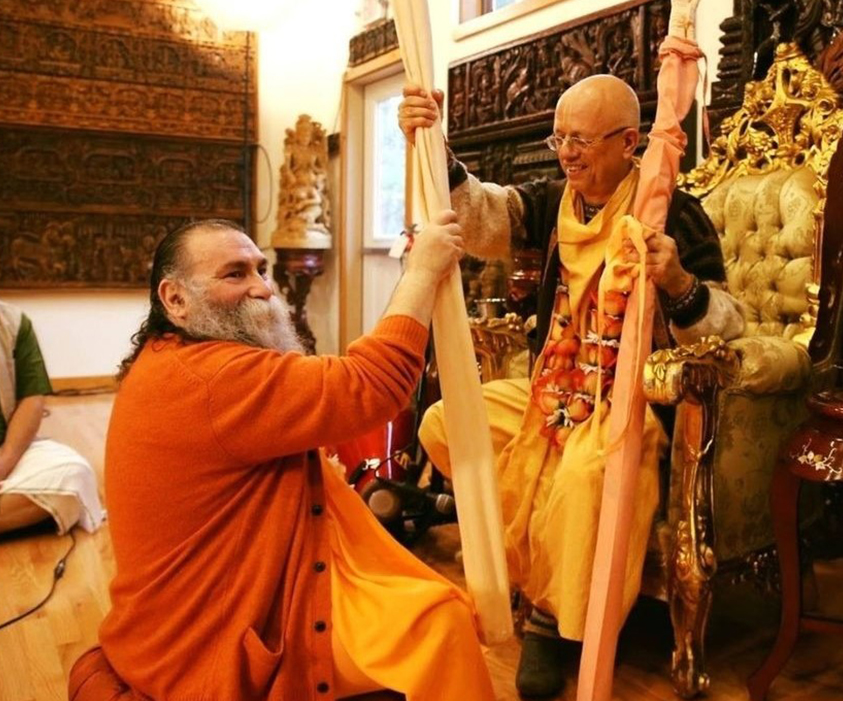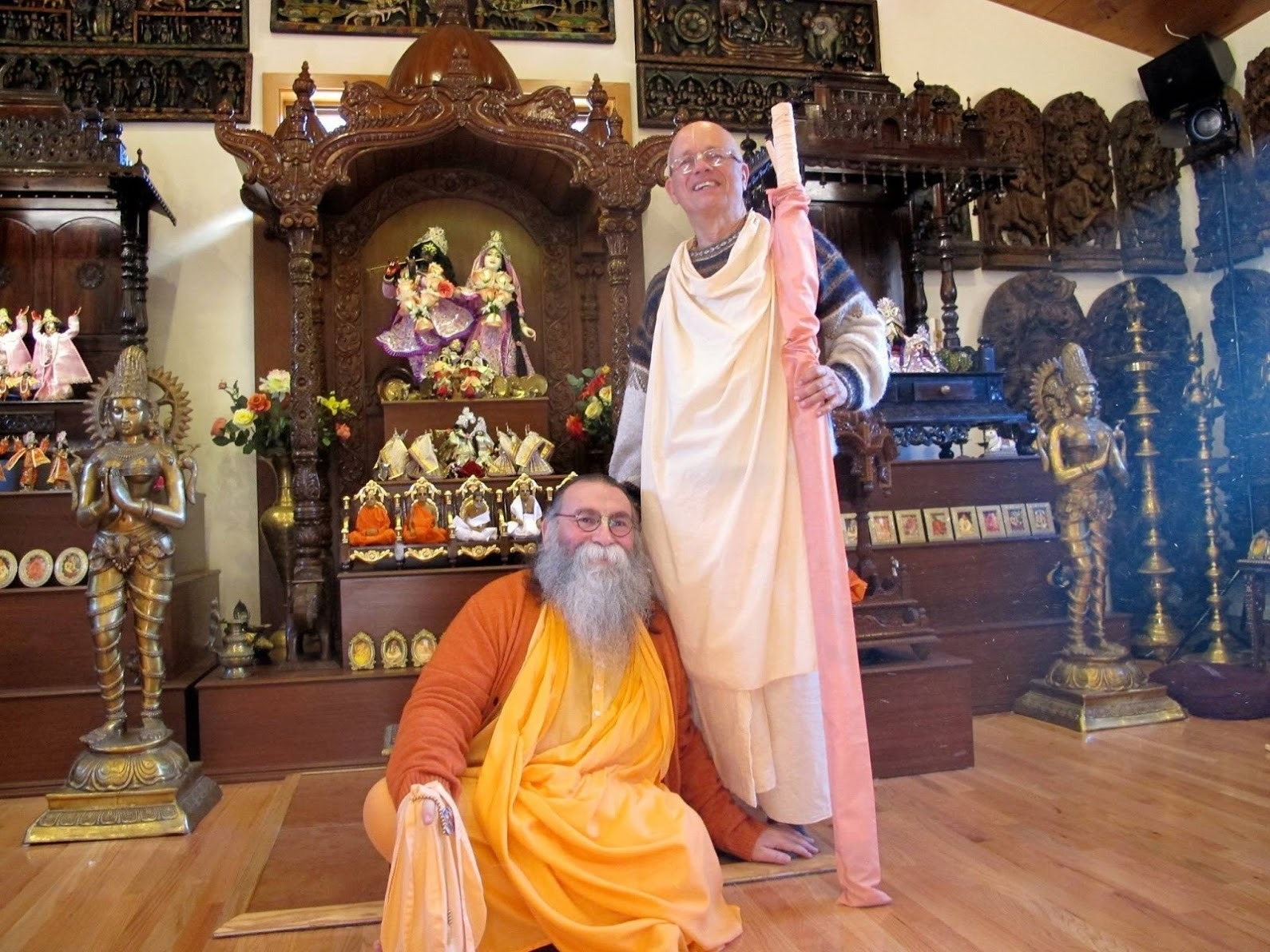एवं परम्पराप्राप्तमिमं राजर्षयो विदुः ।
स कालेनेह महता योगो नष्टः परन्तप ॥ ४-२॥
evaṃ paramparāprāptam
imaṃ rājarṣayo viduḥ
sa kāleneha mahatā
yogo naṣṭaḥ parantapa
“This knowledge, handed down thus in regular succession, the royal sages knew. This wisdom, by long lapse of time, has been lost here, O Parantapa”
(Bhagavad-gita 4.2)

H.D.G. Avadhuta Bhaktivedanta Yogacharya Ramakrishnananda Babaji Maharaja
(Prabhuji)
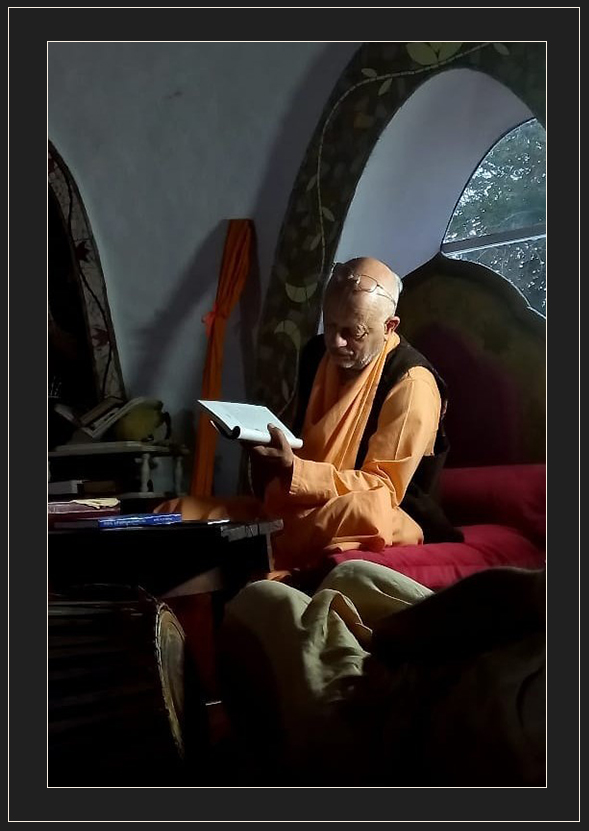
H.D.G. Bhaktikavi Atulanada Acharya Swami Maharaja
(Gurudeva)
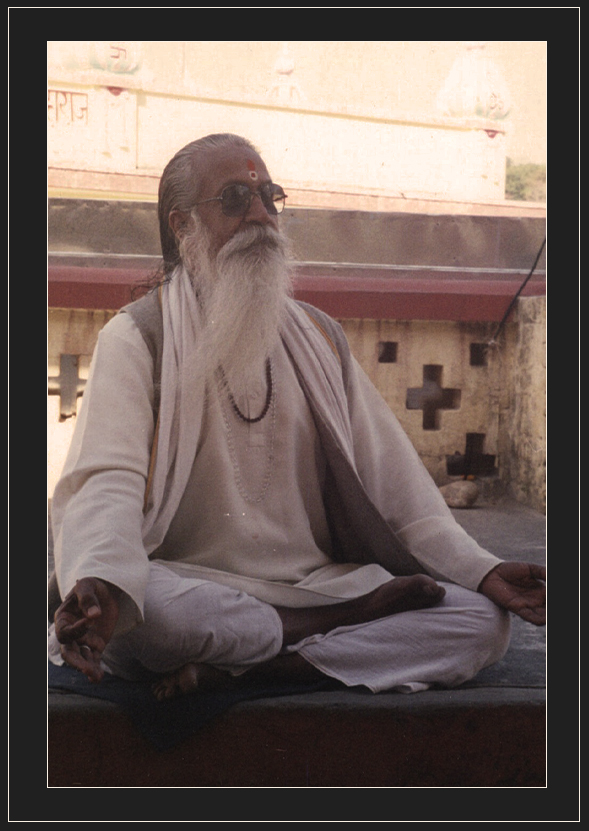
H.D.G. Avadhuta
Brahmananda Babaji Maharaja
(Guru Maharaja)
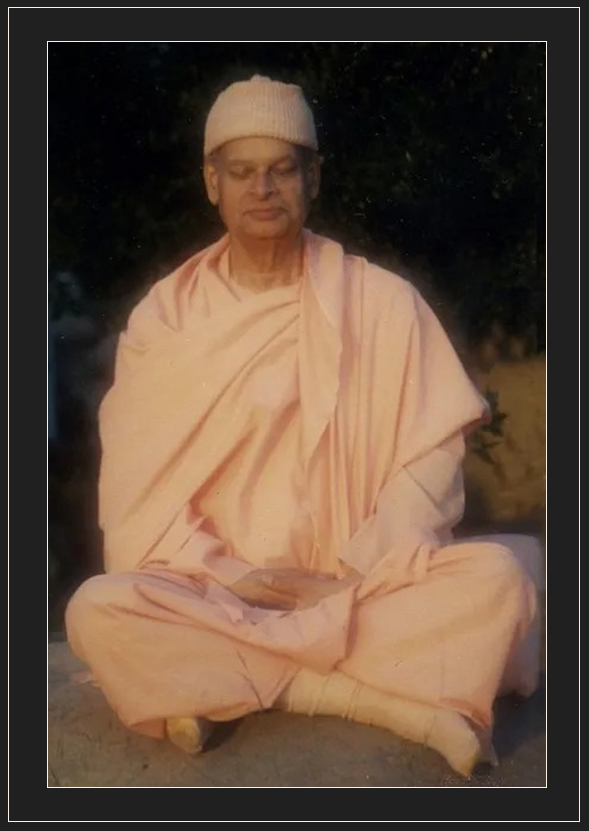
H.D.G. Swami
Swahananda
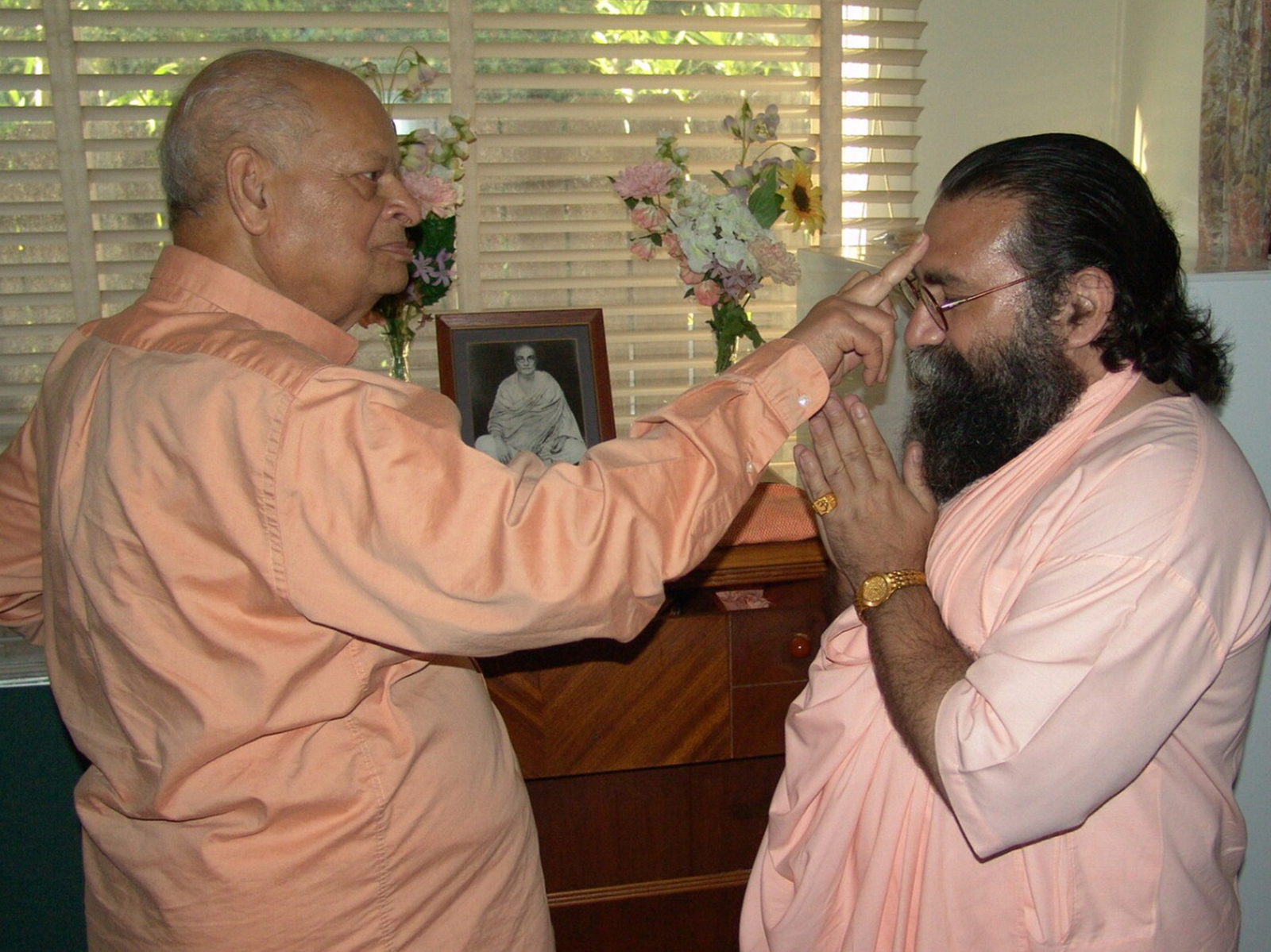
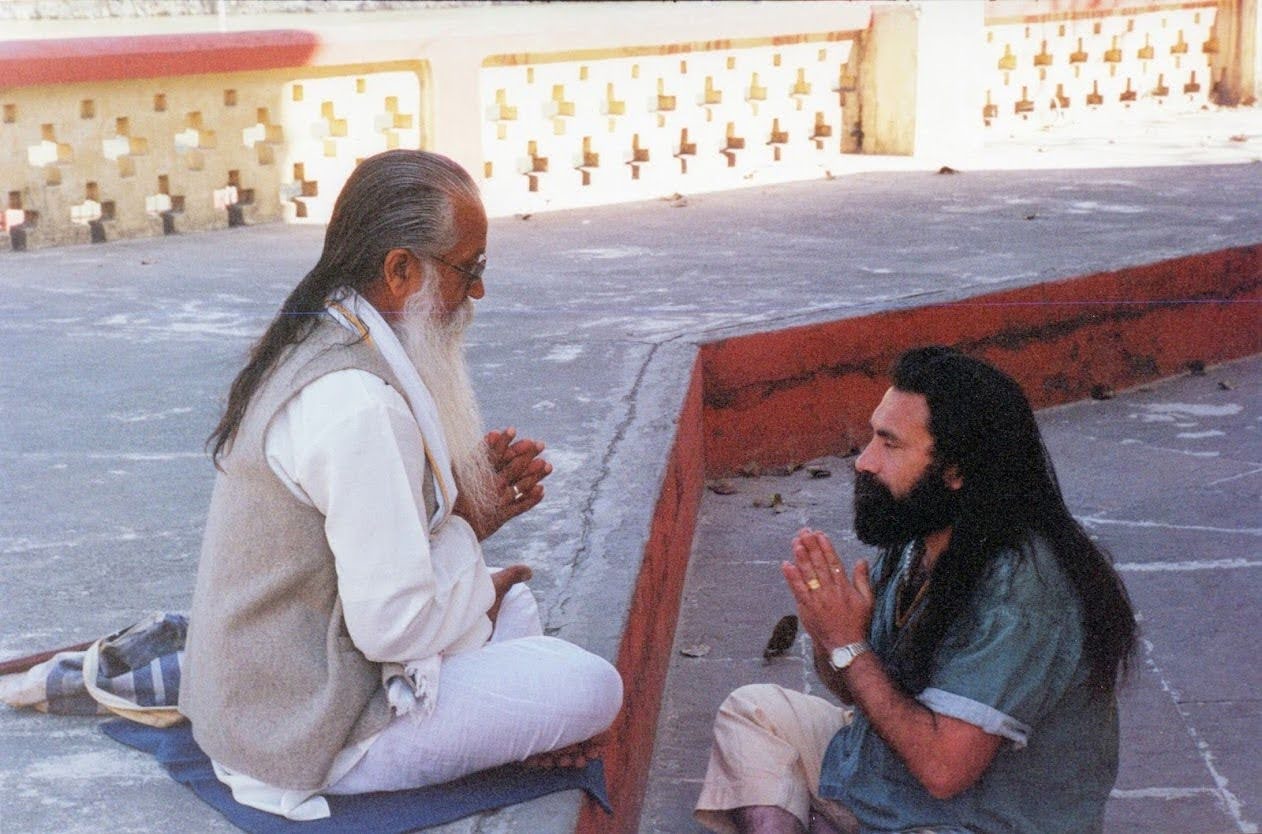
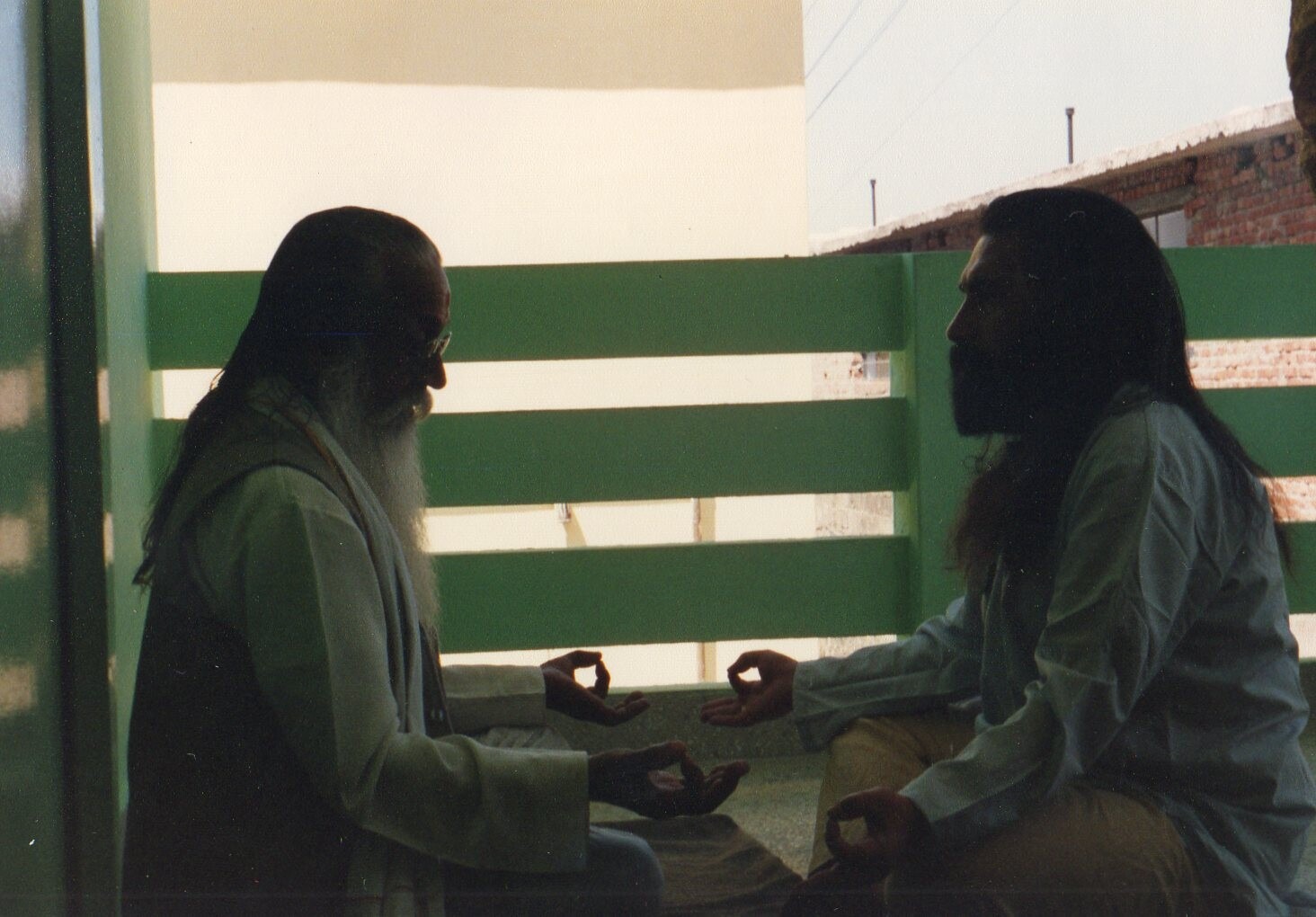
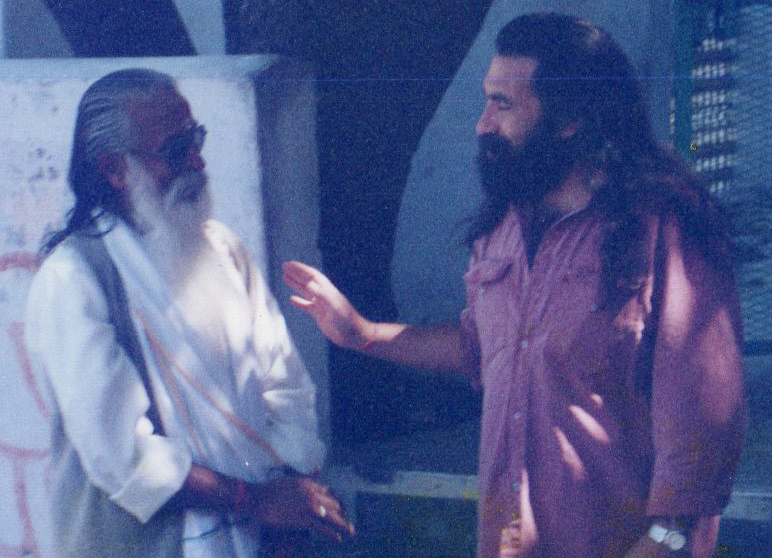
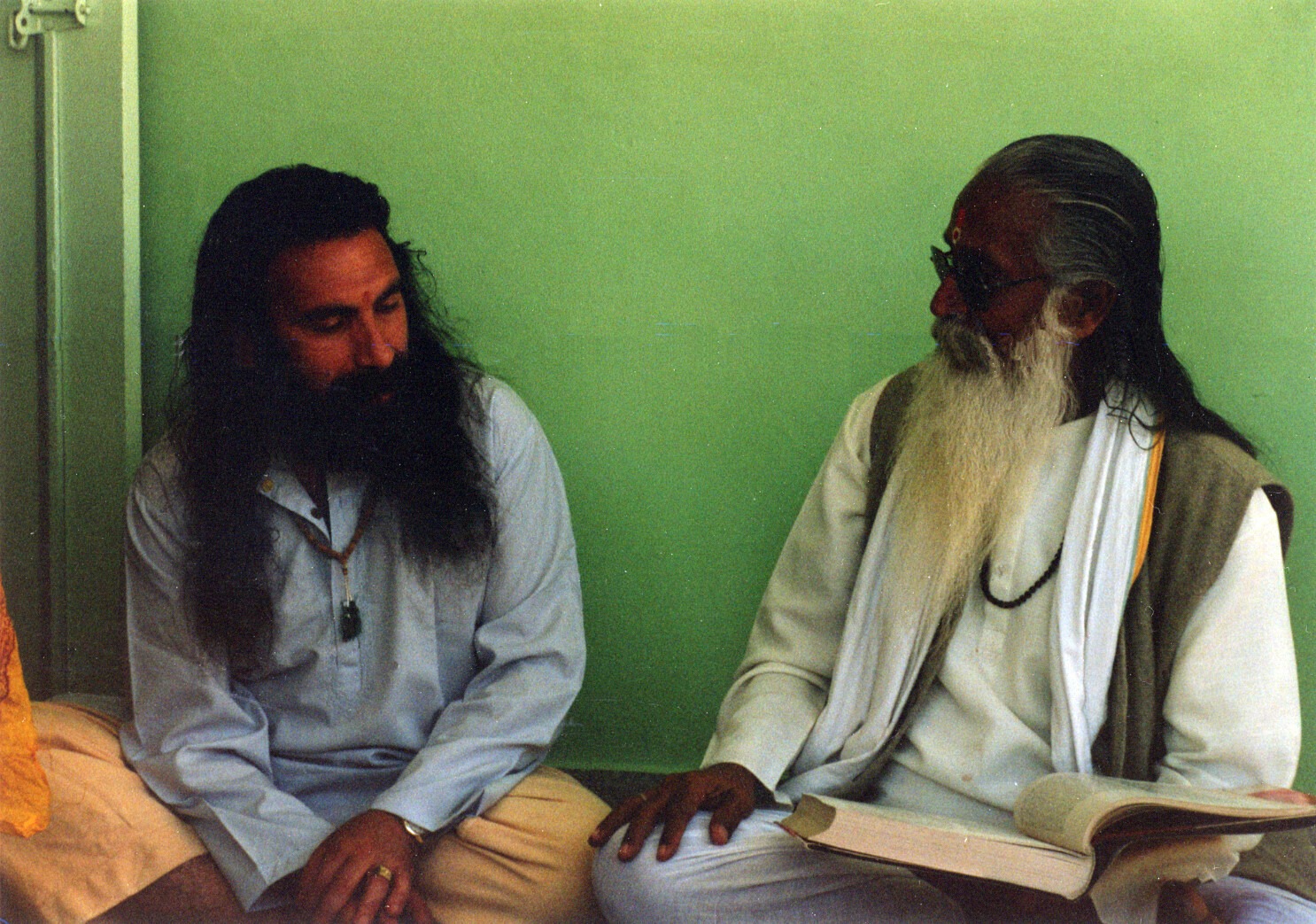
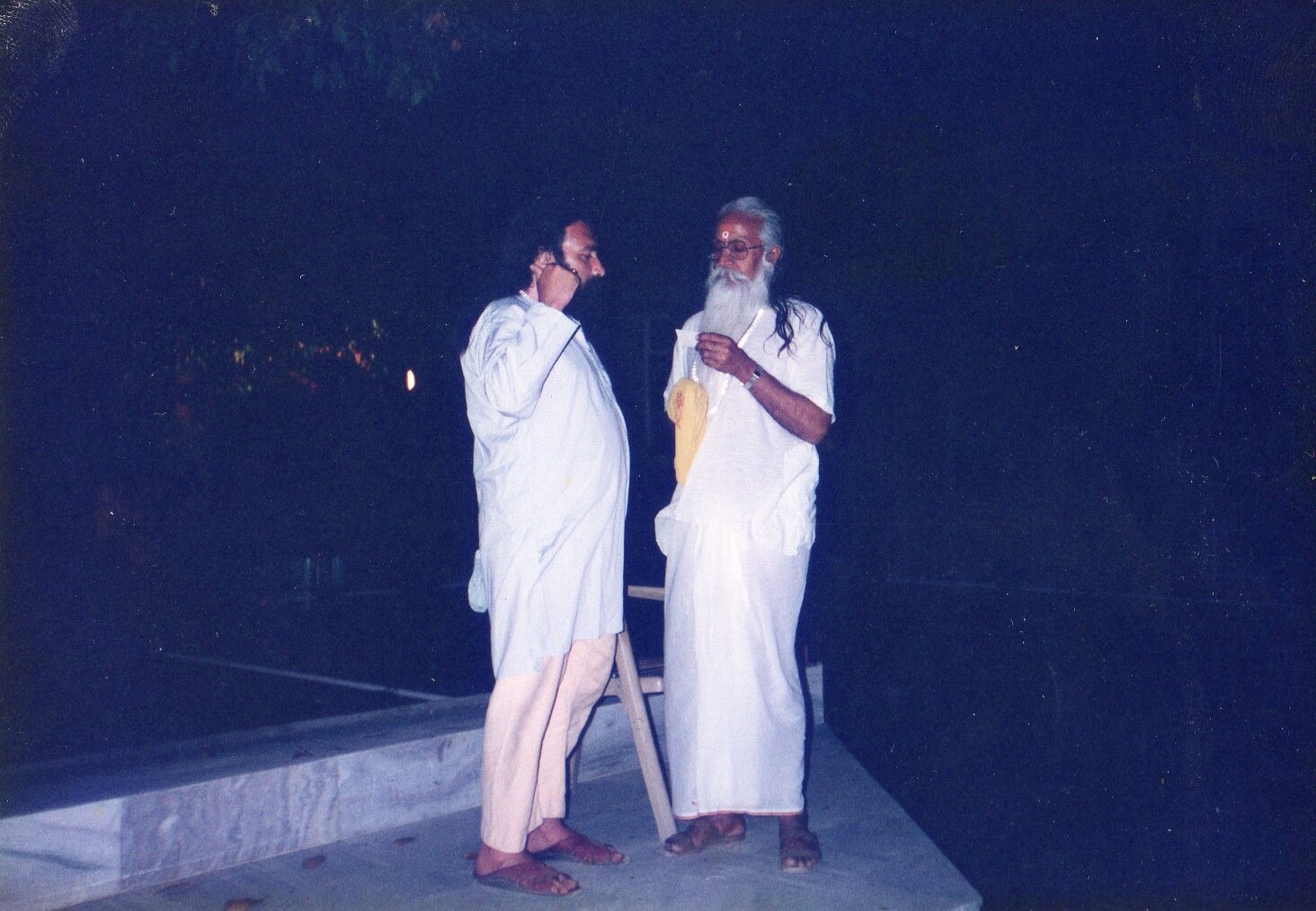
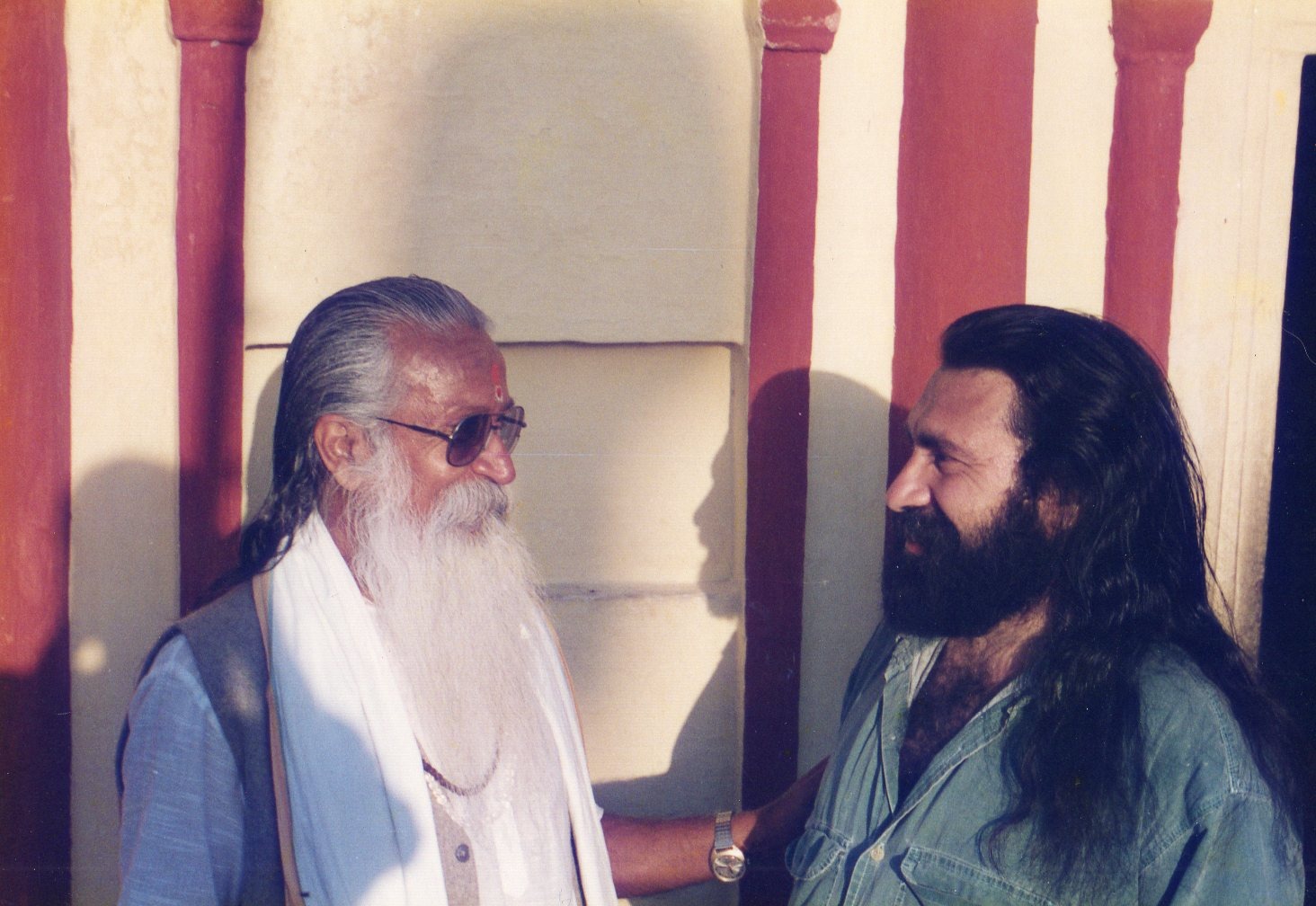
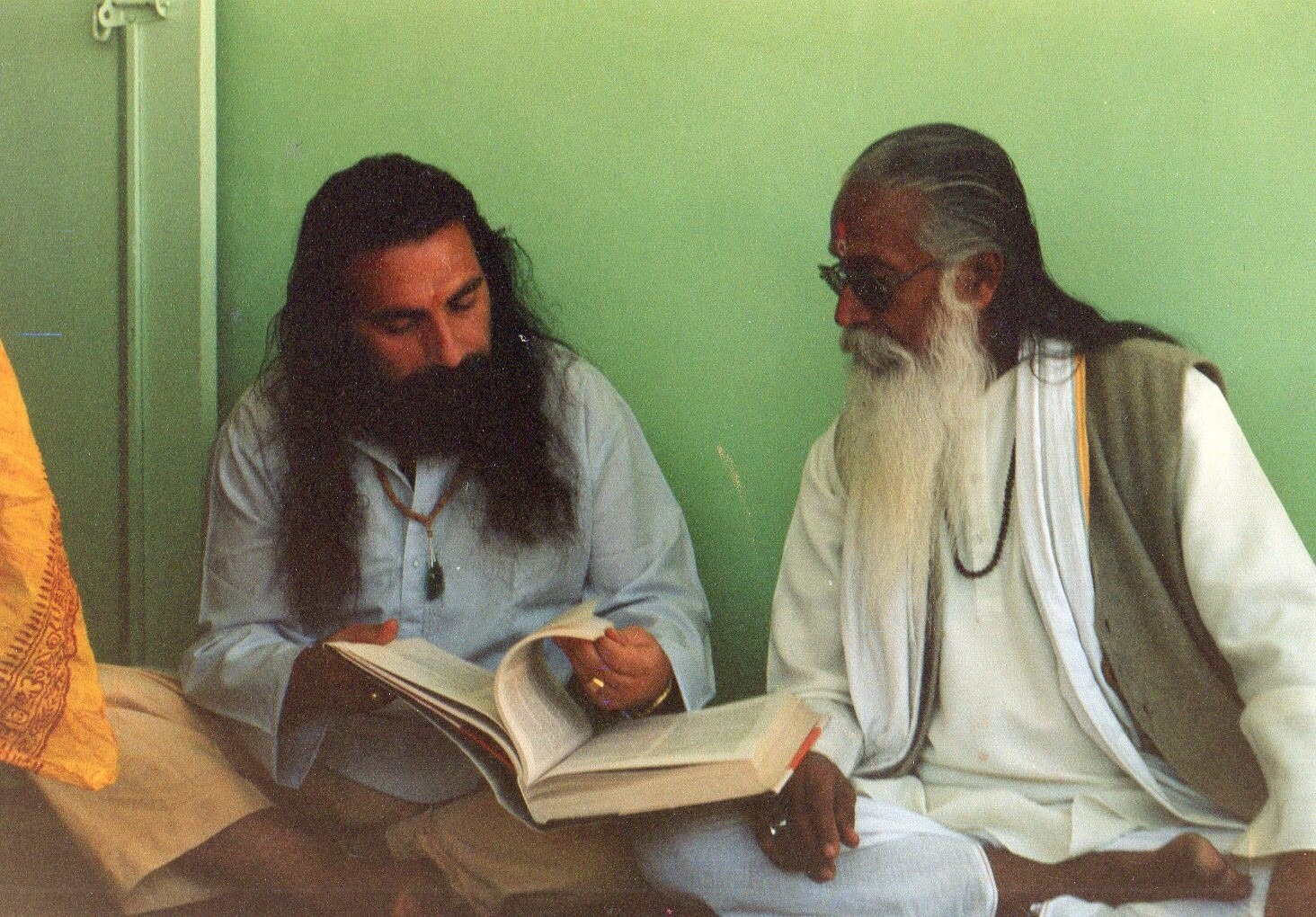
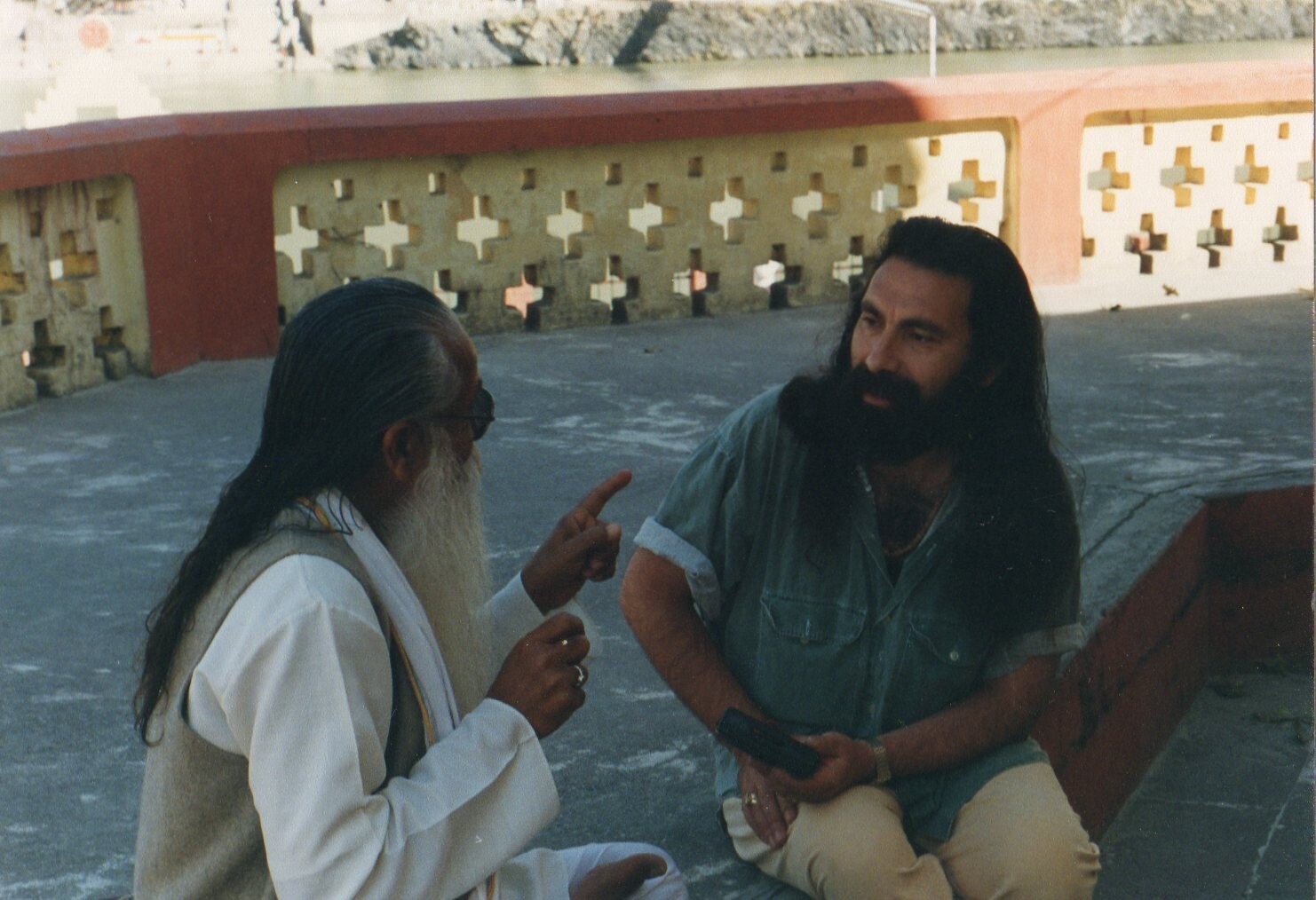
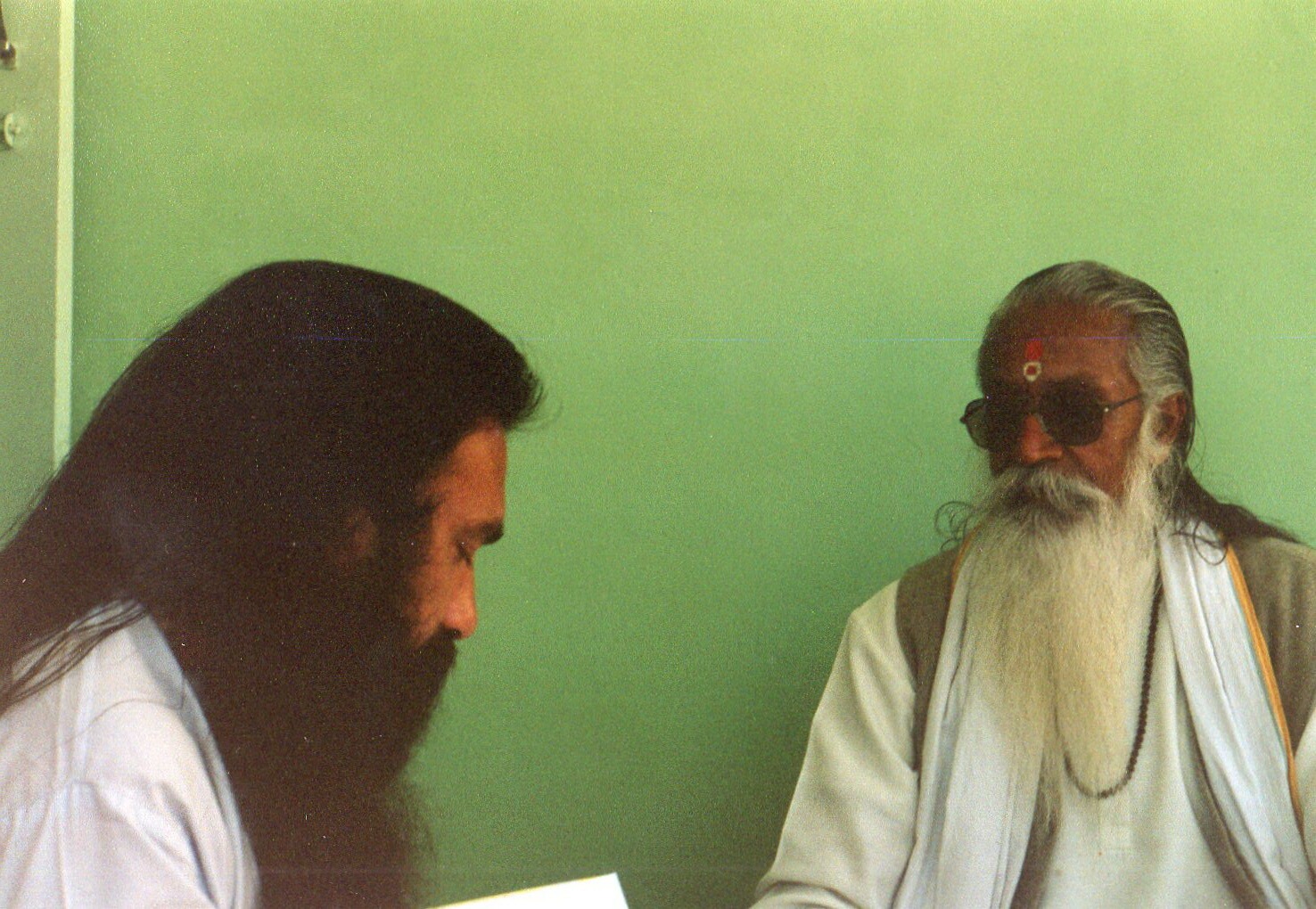
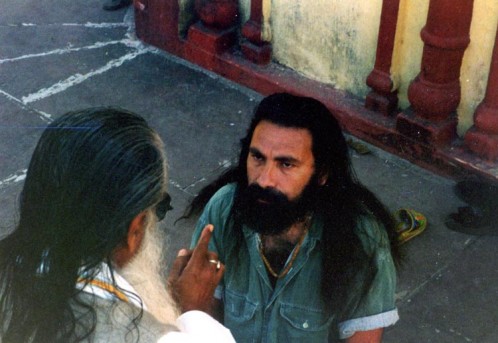
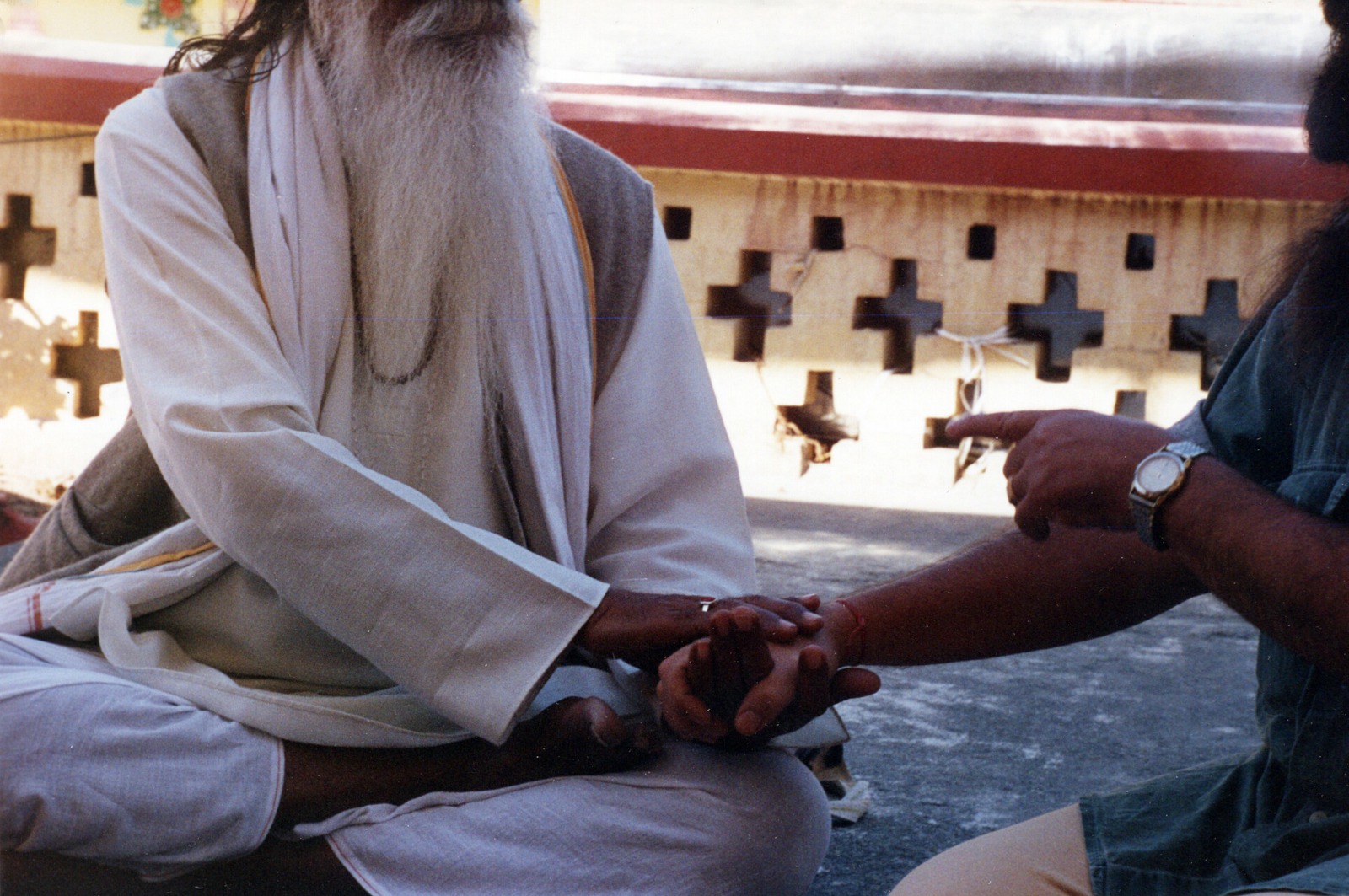
“In order to learn the transcendental science, one must approach the bona fide spiritual master, who is fixed in the absolute Truth.”
(Muṇḍaka Upanishad, 1.2.12)
“One should know the ācārya as myself and never disrespect him in any way. One should not envy him, thinking him an ordinary man, for he is the representative of all the demigods.”
(Śrimad-bhāgavatam, 11.17.27)
“When a pure devotee or spiritual master speak, what he says should be accepted as having been directly spoken by the Supreme Personality of Godhead in the paramparā system.”
(Commentary by H.D.G. A.C. Bhaktivedānta Swami Prabhupāda to the Śrī Caitanya-caritāmṛta, “Antya-līlā,” 5.71)
“The Guru is God Himself manifesting in a personal form to guide the aspirant. Grace of God takes the form of the Guru. To see the Guru is to see God. The Guru is united with God. He inspires devotion in others. His presence purifies all.”
(H.H. Swami Sivananda)
“The Guru’s contradictory statements and insultive words are a challenge and a test for the disciple. The Guru sees whether the disciple is tempted and upset. The intelligent disciple should know how to act under such circumstances.”
(Moksha Gita, H.H. Swami sivananda)
“Find the teacher, serve him as a child, open your heart to his influence, see in him God manifested.”
(Swami Vivekananda)
“With a true master, the disciple learns how to learn, not how to remember and obey. Relationship with the lucid one does not mold you but liberates you.”
(Nisargadatta Mahārāja)
gu-śabdas tv andha-kāraḥ syāt
ru-śabdas tan nirodhakaḥ
andhakāra nirodhitvād
gurur ity abhidhīyate
“The syllable gu means ‘darkness,’ the syllable ru, ‘the one who dispels it.’’ Because of the power to dispel darkness, the guru is thus named.”
(Advaya Taraka Upanishad, 16)
yasya deve parā bhaktir yathā
deve tathā gurau
tasyaite kathitā hy arthāḥprakāśante mahātmanaḥ
“Only unto those great souls who have implicit faith in both God and the spiritual master are all the imports of Vedic knowledge automatically revealed.”
(Śvetāśvatara Upanishad, 6.23)
tad viddhi praṇipātena
paripraśnena sevayā
upadekṣyanti te jñānaṁ
jñāninas tattva-darśinaḥ“Just try to learn the truth by approaching a spiritual master. Inquire from him submissively and render service unto him. The self-realized soul can impart knowledge unto you because he has seen the truth.”
(Bhagavad Gita, 4.34)
“When the teacher finds from signs that knowledge has not been grasped or has been wrongly grasped by the student, he should remove the causes of non-comprehension in the student. This includes the student’s past and present knowledge, want of previous knowledge of what constitutes subjects of discrimination and rules of reasoning, behavior such as unrestrained conduct and speech, courting popularity, vanity of his parentage, ethical flaws that are means contrary to those causes. The teacher must enjoin means in the student that are enjoined by the Śruti and Smṛti, such as avoidance of anger, yamas consisting of Ahiṁsā and others, also the rules of conduct that are not inconsistent with knowledge. He [teacher] should also thoroughly impress upon the student qualities like humility, which are the means to knowledge.”
(Upadeśa Sāhasrī by Ādi Śaṅkarācāryaḥ, 1.4–1.5)
“He who cannot learn through the wisdom and love of his God-ordained guru will not find God in this life. Several incarnations at least must pass before he will have another such opportunity.”
(Yogananda Paramahamsa)
“The guru serves as this mirror. He holds up to the devotee a reflection of his perfect soul-image over which is superimposed the flaws of the ego that yet mar perfection.”
(Yogananda Paramahamsa)
“I had a Guru. He was a great saint and most merciful. I served him long – very, very long; still, he would not blow any mantra in my ears. I had a keen desire never to leave him but to stay with him and serve him and at all cost receive some instruction from him.”
(Sathya Sai Baba)
“I have my own spiritual guru, and I’m so happy, and I feel so satisfied that I might appreciate many other famous gurus, but, you know, I am not attracted that way because I have found the person.”
(Sri Sri Ravi Shankar)
“Let no man in the world live in delusion. Without a Guru, none can cross over to the other shore.”
(Guru Nanak)
“Children, we can grow spiritually only if we see the guru as the manifestation of God. We should not accept anyone as guru before we are fully convinced personally that he is authentic and truthful. Once we choose someone as guru, we should surrender completely to him. Only then will spiritual development be possible. Devotion to the guru means total surrender to him.”
(Mata Amritanandamayi)
“Guru and God both appear before me. To whom should I prostrate? I bow before Guru who introduced God to me.”
(Kabir)
“He is an Acharya through whom the divine power acts.”
(Swami Vivekananda)
“By the grace of God, an aspirant comes into contact with a Guru who is established in Brahman. And through the grace of the Guru he learns the secrets and puts them into practice.”
(Swami Tapovan Maharaja)
“One’s body may be handsome, wife beautiful, fame, excellent and varied, and wealth like unto Mount Meru; but if one’s mind not be attached to the lotus feet of the Guru, what thence, what thence, what thence, what thence?”
(Ādi Śaṅkarācāryaḥ)
“The human Guru whispers the sacred formula (mantra) in the ear; the Divine guru breathes the spirit into the soul.”
(Ramakrishna Paramahansa)
